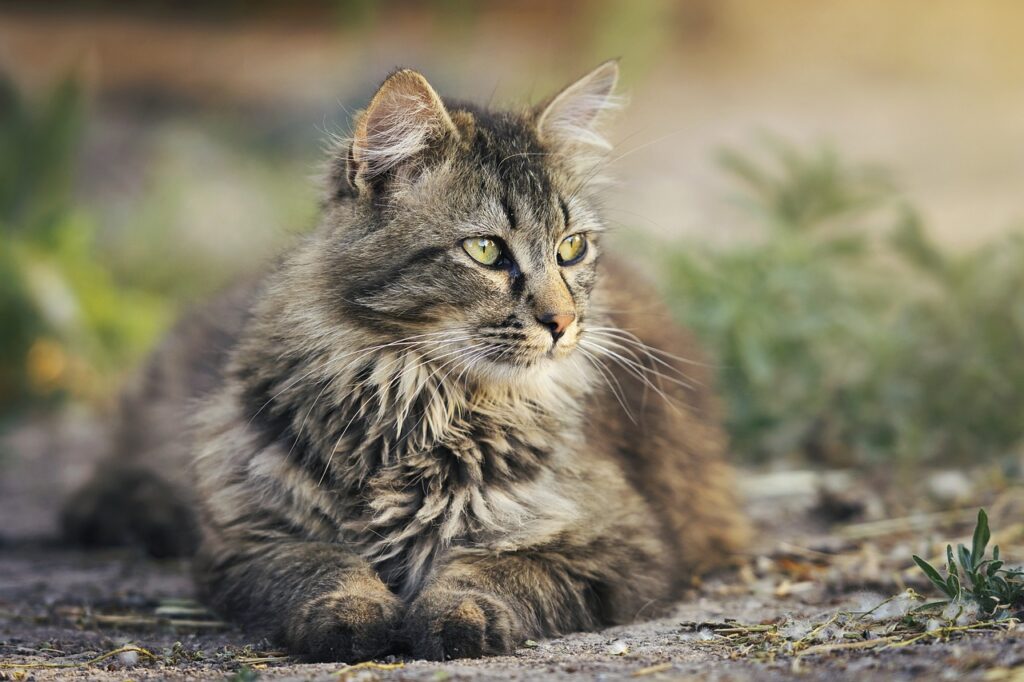Can Cats Eat Sardines? – Yes, They Can
Cats can definitely enjoy sardines as an occasional treat. Sardines are packed with beneficial nutrients that can be a healthy addition to your feline’s diet. But, you must give them sardines in moderation. Too much can lead to health issues because of the high fat content and possibly added salt. Plus, it’s crucial to choose sardines that are in water, not oil or sauces that can contain harmful ingredients for cats.
Can Kittens Eat Sardines?
In moderation, kittens can eat sardines too. However, because their digestive systems are still developing, it’s important to be extra cautious. Sardines can be introduced as a tiny portion of their diet after they are weaned off their mother’s milk and start eating solid food. Remember, the primary focus for kittens should be on a high-quality kitten food that provides complete nutrition.
Things to consider when feeding sardines to kittens?
Kittens are especially sensitive to dietary changes. When introducing sardines, monitor for any adverse reactions like upset stomach or allergies. Start with a very small amount. And, always ensure the sardines are fresh and have no added salt, spices, or preservatives which can be harmful to a kitten’s delicate stomach.
Nutritional Benefits of Sardines for Cats – Why Sardines are good for Cats?
Omega-3 Fatty Acids
Sardines are an excellent source of Omega-3 fatty acids, which are essential for maintaining a cat’s healthy coat and skin, reducing inflammation, and aiding cognitive function.
Protein
A high-quality source of animal protein, sardines support a cat’s muscle growth and maintenance which is critical for their everyday health and vitality.
Calcium and Phosphorus
With bones included, sardines are a natural provider of calcium and phosphorus. These minerals are vital for the development and maintenance of strong bones and teeth in cats.
Vitamins
Sardines contain vitamins such as vitamin D and B12. Vitamin D supports bone health, and B12 is crucial for maintaining a healthy nervous system and digestive tract.
Taurine
This essential amino acid found in sardines is vital for vision, digestion, and heart muscle function. Cats cannot produce it naturally, so it must come from their diet.
Potential Allergies: Can Cats Be Allergic to Sardines?
While allergies to sardines in cats are rare, they can still occur. Always introduce any new food into your cat’s diet slowly and in small amounts to monitor their reaction.
Symptoms of Sardine Allergies in Cats
- Itching or skin irritation: If your cat starts scratching more than usual or has patches of irritated skin, he might have an allergy.
- Upset stomach: Vomiting or diarrhea after eating sardines could indicate an allergy or simply an intolerance.
- Respiratory problems: Any unusual breathing issues following the introduction of a new food can be a sign of an allergic reaction.
What to Do If Your Cat Shows Symptoms?
- Consult a veterinarian: If you notice any of the above symptoms, the safest course is to seek professional advice.
- Elimination diet: The vet may suggest an elimination diet to identify the allergen.
- Immediate discontinuation: Stop feeding sardines to your cat if there’s any sign of an adverse reaction.
Recommended Amount: How Much Sardines Can a Cat Consume?
Cats should only have sardines as a treat, not as a main component of their diet. A small sardine once a week is usually sufficient for most average-sized adult cats. Be sure to consult your vet for a portion size suited to your cat’s specific dietary needs.
Things to Consider When Feeding Sardines to Cats
When feeding cats sardines, consider the source. Ensure there’s no added salt and they aren’t packed in oil or sauce. Always look at the nutritional completeness of your cat’s overall diet, and regard sardines as a supplementary treat.
How to Feed Sardines to Cats: A Quick Guide
Sardines can be a delectable and nutritious treat for your cat when served correctly. Here’s how you can incorporate this fish into their diet safely.
Plain Sardine Treat
Simply open a tin of sardines in water, take one small sardine out, and chop it into appropriately sized pieces for your cat to enjoy as a rare delicacy.
Sardine Puree
Blend sardine with a bit of water to create a smooth puree. This can be spooned over their regular food as a special topper to entice a fussy eater or add extra nutrients.
Chilled Sardine Snack
For a summertime treat, mince a sardine and mix it with a bit of water. Place the mixture into an ice cube tray and freeze. Give your cat a single cube to lick on a hot day.
Conclusion
In conclusion, sardines can be a tasty and nutritious treat for cats, offering a variety of health benefits. But, like all good things, they should be offered in moderation as a supplement to a well-balanced diet. Always consult with your vet before making any significant changes to your pet’s diet. Watch for any signs of allergies, and ensure the sardines are plain, in water, and without added salt or seasonings. Keep the love flowing and the sardines controlled!



